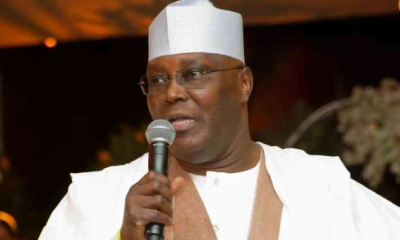Nigeria’s total debt stock climber higher from N19.64trn recorded in June 30 to 20.37trn as of September 30, the Debt Management Office has said.
In a statement made available to our correspondent in Abuja on Tuesday, the DMO said the total public debt stock comprising the Federal Government, the 36 states and the Federal Capital Territory, stood at N20.37tn as of September 30.
This shows a marginal increase of 3.6 per cent from the N19.64tn as of June 30.
A breakdown of the debt stock shows that domestic debt accounted for 76.96 per cent, while external debt accounted for 23.04 per cent.
Specifically, domestic debt stock stood at N15.68tn, which is an increase of 4.1 per cent compared to N15.03tn as of June 30. On the other hand, external debt stock stood at N4.69tn, a marginal rise of 1.9 per cent above the N4.6tn as of June 30.
According to DMO, the debt data lend credence to government’s claims that the public debt stock was skewed in favour of domestic debt which is partly responsible for the high debt service figures.
It is against this background that analysts have commended the government on its strategy of introducing lower cost external debt into the debt stock in order to reduce debt service costs.
For this purpose, the government is making arrangements to raise external funds of $5.5bn.
According to DMO, the amount which comprises of $2.5bn in new borrowing to part finance the N2.32tn deficit in the 2017 Appropriation Act and $3bn to repay maturing domestic debt is expected to achieve a reduction in interest costs of about N75bn and N91bn respectively when compared to the interest cost of borrowing in Naira in the domestic market.
The strategy will also contribute to attaining the target ratio of 60:40 between domestic and external debt, the DMO said.
Other benefits of the strategy, according to DMO, include increased availability of funds to the private sector and lower domestic lending rates both of which will enable the private sector contribute to growth, as well as, higher level of eternal reserves to support the Naira exchange rate.

 Football2 days ago
Football2 days ago
 Business1 week ago
Business1 week ago
 Business1 week ago
Business1 week ago
 Education1 week ago
Education1 week ago
 Crime1 week ago
Crime1 week ago
 Covid-191 week ago
Covid-191 week ago
 Latest6 days ago
Latest6 days ago
 Business1 week ago
Business1 week ago













